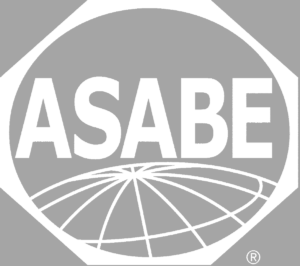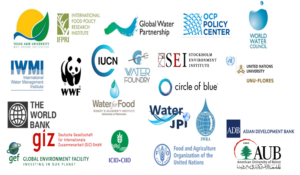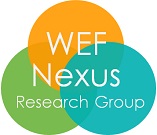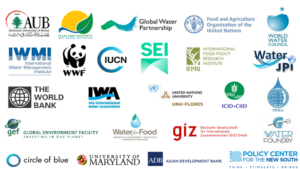WEF Nexus Consortium Objectives:
- Share WEF Nexus lessons learned across scales and sectors toward implementation of the SDGs
- Facilitate dialogue between the stakeholders regarding the role of WEF Nexus in implementing the SDGs: funding agencies, banks, academia, private & public sectors, technology providers, entrepreneurs, civil society.
- Discuss ways in which to improve policy coherence across WEF sectors and scales.
Up coming Events:
17th IWRA World Water Congress 2020, | Degu, Korea | new dates: 21st – 25th September 2020
Session: Multi-Stakeholder Science and Policy Dialogue to Support Implementation of the SDGs
The session will focus on unlocking new potential for addressing the interconnected resource challenges of the SDGs by bridging accumulated experiences in practice, policy, and science with theories and practices to support SDGs implementation. Panel members will share lessons learned about the related science, practice and policy approaches using pilot implementation projects (case studies) from several SDG hotspots around the globe. They will address the use of these and other relevant case studies to achieve convergence and increased stakeholder understanding of the trade-offs associated with implementation of the SDGs. Specifically, panellists will showcase innovative methods, approaches, and practices for addressing the SDGs as a system of interconnected goals.
Other Key Consortium Milestones:
2019 Events
 American Society for Agricultural and Biological (ASABE) Annual International Meeting, Boston, USA | July 8, 2019
American Society for Agricultural and Biological (ASABE) Annual International Meeting, Boston, USA | July 8, 2019
Session: Implementing Water, Energy, and Food Sustainable Development Goals
In 2015, the United Nations approved 17 Sustainable Development Goals (SDGs), replacing the millennium development goals and including goals for primary resources and human security. Our ASABE disciplines encompass many of these goals. Achieving the SDGs in a coherent manner is proving a challenge to communities. Naturally, the SDGs are interconnected and, potentially compete for land, primary resources, capital, and human resources. A consortium of partners, established in 2016, works to catalyze dialogue aimed at addressing these challenges. Building on key milestones from Stockholm (WWW 2016) and Cancun (WWC 2017), and Brasilia (WWF 2018), this session shared data, knowledge, and tools regarding the ways in which the SDGs are interconnected and optimizing resources toward achieving them as a system of interconnected goals.
 Water Future International Conference: Towards a Sustainable Water Future, September 24-27 2019 | Bangalaru, India
Water Future International Conference: Towards a Sustainable Water Future, September 24-27 2019 | Bangalaru, India
Session: Bridging social and physical sciences to address interconnected water, energy, and food security challenges
The session focused on unlocking new potential to address interconnected resource challenges through bridging between the accumulated experience in modelling interconnections between resource systems and social science theory and application. Panel members used pilot implementation projects from several Water-Energy-Food Nexus hotspots globally. They shared lessons learned about the modelling and quantitative analysis of interlinkages, and about the use of relevant social theories in achieving potential convergence and increasing stakeholder understanding of the trade-offs associated with resource allocation and consumption. Moving forward, sharing research and experience will contribute to efforts to operationalize WEF nexus research.
International Conference for Sustainable Development, Columbia University, New York City, USA | September 24-25, 2019
Session: Good Practices at the Nexus of Water, Energy, and Agriculture
The session focused on unlocking new potential for addressing interconnected resource challenges through bridging accumulated experiences in modelling interconnections between resource systems with theories in social science and their application.
SPECIAL EVENT: Opportunities of Water-Energy-Food Nexus Approach: Innovatively driving Economic Development, Social Well-being, and Environmental Sustainability. WEBINAR, co-hosted by The American University of Beirut and Texas A&M University.
November 27, 2018 | 8:30-10:30 AM CST | 4:30-6:30 PM Beirut Time
Attend virtually @ WebEx Link or in person: TAMU @ Energy Institute, GERB 315 | AUB @ FAS, Wing A, Room 325
For more information (ProgramNexusWebinar)
STOTEN Special Issue: reporting on the San Antonio Case Studies and Lessons Learned. For a list of all articles in the special issue, visit the WEF Nexus Research Group
********
Multi-stakeholder Dialogue: Water-Energy-Food (WEF) Nexus and SDGs Implementation Supporting policy coherence efforts in achieving the sustainable development goal efforts and implementation. Contact: Rabi H. Mohtar, USA, mohtar@tamu.edu
Summary (pdf) Powerpoint. (pdf) Session Photos (link) (please credit: J. Carl Ganter/Circle of Blue / circleofblue.org)
This event, and its consortium of partners, were the outcome of a momentum that has grown since the 2016 Stockholm World Water Week and which continued at the 2017 World Water Congress. These events and the work conducted by the consortium partners paved the way to Brasilia 2018.
The session was conducted in English, with simultaneous translation into Portugese. It included a keynote address and a panel discussion by representatives of relevant sectors, including banking and funding agencies, governance, science, public-private partnerships (PPPs), communications and public engagement. The moderated discussion that followed also addressed audience questions. The debate aimed to support policy coherence efforts of the Forum process toward achieving the sustainable development goal efforts and their implementation.
Co-organizers included:
 Texas A&M University, Stockholm Environment Institute, International Food Policy Research Institute, International Water Management Institute, Global Water Partnership, Water Foundry, World Wildlife Fund, International Union for Conservation on Nature, World Water Council, UNU Flores, OCP Policy Center, Asian Development Bank, The World Bank, International Water Association(IWA), Circle of Blue, Global Environmental Facility, GIZ, International Water Resources Association, Water for Food (U NE), The International Commission on Irrigation and Drainage (ICID), The Joint Programming Initiative (Water JPI), the American University of Beirut (AUB), and the Food and Agriculture Organization of the United Nations (UN FAO).
Texas A&M University, Stockholm Environment Institute, International Food Policy Research Institute, International Water Management Institute, Global Water Partnership, Water Foundry, World Wildlife Fund, International Union for Conservation on Nature, World Water Council, UNU Flores, OCP Policy Center, Asian Development Bank, The World Bank, International Water Association(IWA), Circle of Blue, Global Environmental Facility, GIZ, International Water Resources Association, Water for Food (U NE), The International Commission on Irrigation and Drainage (ICID), The Joint Programming Initiative (Water JPI), the American University of Beirut (AUB), and the Food and Agriculture Organization of the United Nations (UN FAO).
The Cancun Whitepaper: Raya Marina Stephan, Rabi H. Mohtar, Bassel Daher, Antonio Embid Irujo, Astrid Hillers, J. Carl Ganter, Louise Karlberg, Liber Martin, Saeed Nairizi, Diego J. Rodriguez, & Will Sarni (2018): Water–energy–food nexus: a platform for implementing the Sustainable Development Goals, Water International, DOI: 10.1080/02508060.2018.1446581.
Additional literature of interest:
- United Nations Economic Commission for Latin America and the Caribbean (UN ECLAC), Maureen Ballestero Vargas and Tania Lopez Lee. The Water-Energy-Food Nexus in Costa Rica: The Case of the Upper Reventazon River Basin. December 2017. access
- OCP Policy Center, Rabi Mohtar. Climate Change and the Water-Energy-Food Nexus in the MENA Region. OCP Policy Brief. October 2017 PB-17/39
- OCP Policy Center, Global Nexus. Morocco’s Water Security: Productivity, Efficiency, Integrity. OCP Policy Brief October 2017 PB-17/34.
- OCP Policy Center, Rabi H. Mohtar. What Role Can Renewable Energy and Water and Food Securities Play for North Africa and the Middle East? OCP Policy Brief. July 2017. PB-17-28. July 2017.
- Bassel Daher, WEF Nexus Research Group, and Texas A&M University (2017). IWRA Sustainability in the Water-Energy-Food Nexus: Bridging Science and Policy Making. Policy Briefing Water International, 6 download
- Comisión Económica para América Latina y el Caribe (CEPAL) Latin America El Nexo Entre el Agua, la energia y la alimentacion en America Latina y el Caribe: planificacion, marco normativo e identificacion de interconexiones prioritarias. April 2017. access
- Nexus Regional Dialogue Programme (NRD) GIZ. Practical Planning Management of WEF-Nexus Issues in Germany. April 2017. Download
- OCP Policy Center, Rabi H. Mohtar. The Role of Soils in Global Water and Food Security. OCP Policy Brief April 2016. PB-16/11.
- Nexus Regional Dialogue Programme (NRD) GIZ. Coordination of Sectoral Interests in the Nexus Between Water, Energy and Agriculture. Mechanisms and Interests in Germany. March 2017. Download
- OCP Policy Center, Rabi Mohtar. The Water-Energy-Food Nexus: Who Owns it?, OCP Policy Brief January 2016. PB-16/03.
- Ait-Kadi, Mohamed, Chair,Global Water Partnership (GWP). 2016. Water for Development and Development for Water: Realizing the Sustainable Development Goals (SDGs) Vision. Elsevier B.B. Open access. doi: 10.1016/j.aqpro.2016.06.013
- Gyawali, D. (2015) Nexus Governance: Harnessing Contending Forces at Work,
Nexus Dialogue Synthesis Papers. Gland, Switzerland: IUCN DOI: 10.2305/IUCN.CH.2015.NEX.5.enNexus access - Ozment, S., DiFrancesco, K., Gartner, T. (2015) The role of natural infrastructure in the water, energy and food nexus, Nexus Dialogue Synthesis Papers. Gland, Switzerland: IUCN DOI: 10.2305/IUCN.CH.2015.NEX.4.en access
- Daniel Yeo, Global Green Growth Institute Ethiopia, OCP Policy Center, Barcelona Centre for International Affairs (CIDOB). Thinking to practice: Applying complexity. The Water-Food-Energy Nexus in Global Drylands: Bridging Science and Policy (paper presented at the conference on the Water-Food-Energy Nexus in Drylands, Rabat, 12-13 June, 2014.) download
- IWA / IUCN. Nexus Dialogue on Water Infrastructure Solutions. Nexus Case Studies. access
- IWA The Water-Energy-Food Nexus in Latin America and the Caribbean. access
- IWA Nexus Trade-offs and Strategies Report 2016 access
- 6th World Water Forum HLP. 2012. Water, Food & Energy Nexus. Time for Solutions. Case Study Nexus. Download
Additional Resources: The Water, Energy, and Food Security Resource Platform

 WEF Nexus Research Group
WEF Nexus Research Group


